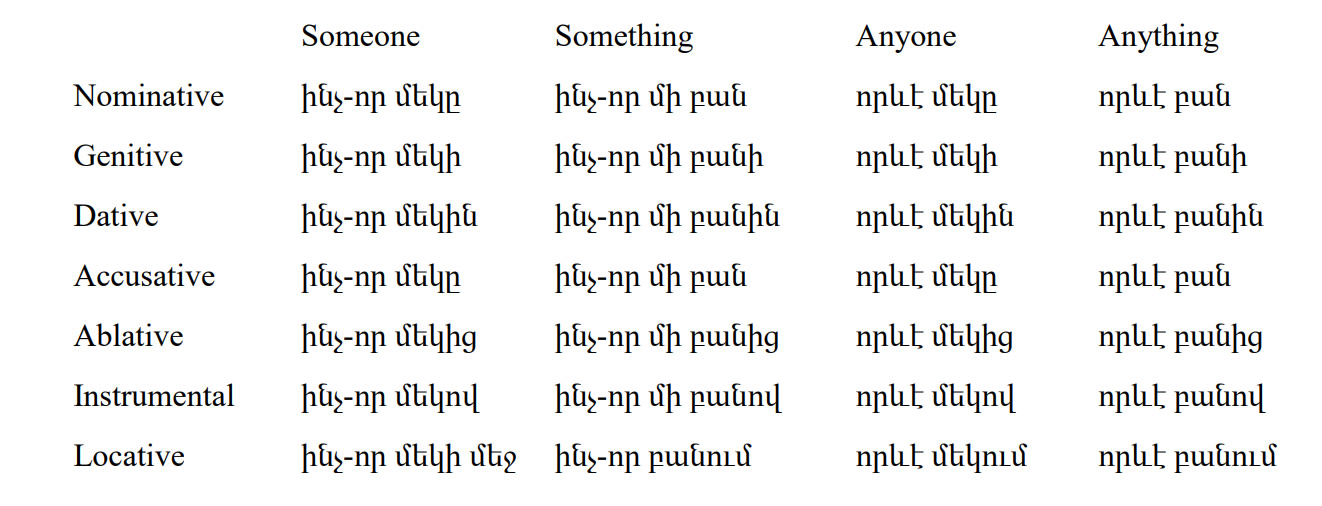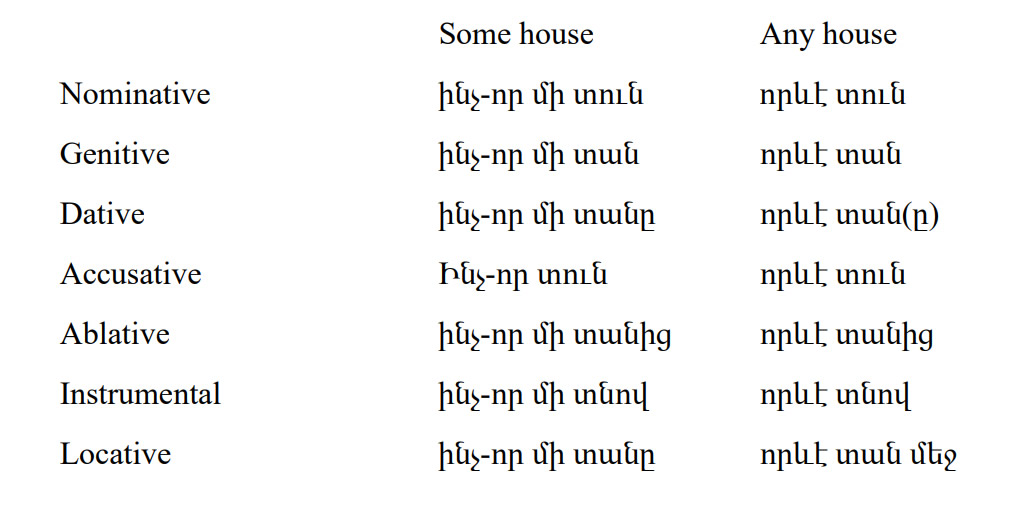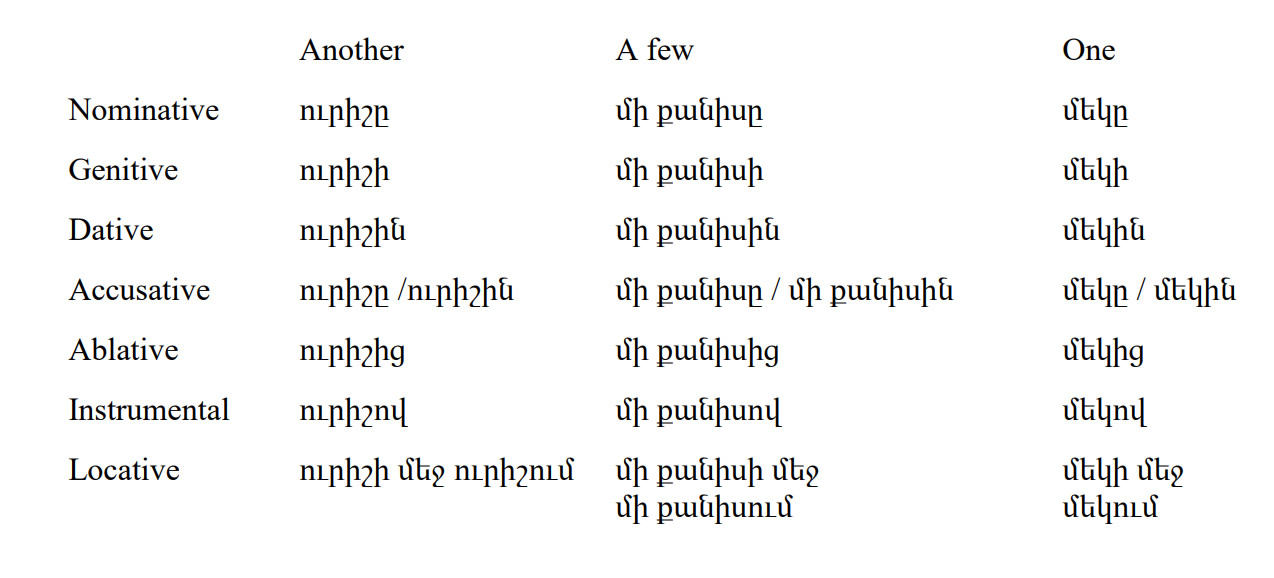Language/Armenian/Grammar/Indefinite-Pronouns
Indefinite pronounce include ինչ-որ, մի քանի, մի քանիսը, մեկը, ուրիշ, ուրիշը, որևէ, երբևէ, ոմանք, որոշ etc. Some English indefinite pronouns such as “someone” , “something”, “anyone” and “anything” are translated into Armenian by expressions composed of ինչ-որ - “some”, “unknown” and որևէ - “any”.
1) Նա ինչ-որ բան ասաց ինձ, բայց ես չհասկացա: He said something to me, but I didn’t understand.
2) Հիվանդանոցում մենք հանդիպեցինք ինչ-որ մեկին: We met with someone in hospital.
Notice that the pronouns ինչ-որ and որևէ do not change its form when expressions with it are declined. The word “բան” means “thing” in contemporary Armenian. In pronouns above it may be replaced with another word denoting a specific person or object. For example:
Other indefinite pronouns that change their form with declension are ուրիշը (another), մի քանիսը (a few of):
1) Ընկերներիցս մի քանիսից նամակներ ստացա: I received letters from a few of my friends.
2) Դու ուրիշի տվեցիր այդ գիրքը: I gave that book to another (person).
3) Դու հիշում ես այդ դեպքը, իսկ ես հիշում եմ մեկ ուրիշը։ You remember that case and I remember another one.
When these pronouns do not have the definite article ուրիշ instead of ուրիշը, մի քանի instead of մի քանիսը, they require an additional word to which they refer to. For example. ուրիշ մեքենա, ուրիշ մարդ, մի քանի տուն, մի քանի մարդ. In this case the additional word is declined while ուրիշ and մի քանի retain their forms. Here are a few examples:
1) Դու մոտեցար (մեկ/մի) ուրիշ մարդու։ You approached another person.
2) Նա գումար վերցրեց (մեկ/մի) ուրիշ մարդուց։ She took a sum of money from another person.
3) Մենք հպարտանում ենք մի քանի ուսանողներով։ We are proud of a few students.
4) Դուք վախենում եք մի քանի ուսանողներից։ You are afraid of a few students.
5) Քո գրքերից մեկն անգլերեն է։ One of your books is in English.
6) Նա գումար տվեց վարորդներից մեկին։ He gave money to one of the drivers.
There are other indefinite pronouns which require another word to refer to and that do not change according to case. Instead the additional word the indefinite pronoun refers to change their form according to the case. These pronouns include որոշ - “some”, որևէ - “any”, and այլ - “other.” Here are some sentences that use these pronouns:
1) Որոշ մարդկանց հեշտ է հասկանալ։ It is easy to understand some people.
2) Որևէ ոստիկանից վախենալու հիմք չկա։ There are no reasons to be afraid of any policeman.
3) Բժիշկը պատասխանեց այլ հարցերի։ The doctor replied to other questions.
4) Դա մեկ այլ օրվա պատմություն է։ It is a story of another day.
The pronoun երբևէ - “never” does not require an additional word, but it also cannot be placed in any case. Pronouns “երբևէ” and “որևէ” are often used in negative sentences. For example:
1) Մենք երբևէ չենք գնացել Մոսկվա։ We have never visited to Moscow.
2) Նրանք որևէ մեքենա չունեն։ They have no cars.
Sources[edit | edit source]
https://slaviccenters.duke.edu/sites/slaviccenters.duke.edu/files/handbook_of_armenian.pdf
Other Lessons[edit | edit source]
- Adverbs
- Indefinite Article
- Conditional Mood
- The Present Simple
- There Is and There Are
- The Future Perfect Tense
- The Nominative Case
- Obligatory Mood Future Obligatory
- The Future Subjunctive Mood
- Irregular Present Tense Verbs




